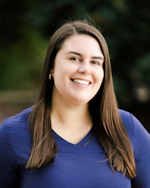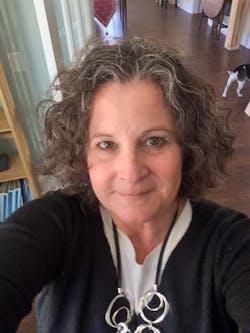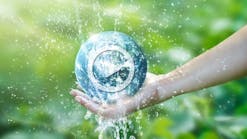*Editor’s note: Answers have been edited for clarity and length.
For the full interview, visit estormwater.com.
Beth McLaughlin thought she wanted to go into civil engineering. But once she hit calculus, she pivoted to biological and agricultural engineering. Now, she owns her own consulting firm. McLaughlin talked with SWS Managing Editor Katie Johns about her career, being a woman in the industry and more.
Katie Johns: Can you tell me how you got started in the water industry and about your career?
Beth McLaughlin: When I got out of school, I had a summer internship with the North Carolina DOT for awhile doing some erosion and sediment control grunt work and then I went to the state and worked as a state regulator for about 10 years in different positions...I found a different career when I moved to Tennessee. I became a consultant and got to know how everybody else does erosion, sediment control and storm water. I kept moving in that direction and like I said, it was like I was falling into it. I certainly didn't plan to be a consultant and certainly didn't plan to do it on my own, which is what I'm doing now.
KJ: Tell me about your consulting firm.
BM: [Four years ago,] the company I was working with dissolved the position that I was working in, and I hadn't felt like I was being very effective in that position anyway. They dissolved the position, and after I licked my wounds and sucked up my pride, I decided, ‘okay, I can do this. I can do this by myself...' Sure enough, I reached out to contacts that I'd made through IECA, and through other professional organizations and professional friends and pretty quickly built a nice little client base.
KJ: What are the biggest lessons you've learned throughout your career?
BM: I think I had an “aha” moment one time when I was doing some training or a conference. I was giving a presentation, and somebody asked me a question I didn't know. I realized that it's much better for me to say, ‘I don't know. Can I get your information and let me find that out and I'll get back with you?’ The other thing I think that I've learned...networking with other women is incredibly important. Find your people and work with them and get strength from each other and knowledge from each other.
KJ: How have you seen the notion of women in engineering and water change throughout the course of your career?
BM: When I was in college, there were two other females in bio and ag engineering. When I began doing my inspections as a state inspector, women were the minority of the group as inspectors, and it was hard. It was hard as a woman in this field, but you just had to ignore it. And I love the fact that there's so many people in this field now, so many females in this field now, that it's not an unusual occurrence to see a female inspector out on a construction site or to see a female water quality specialist collecting water quality samples or to see a female public works director or city engineer...I haven't really sat back and thought about that, but there are more females in the field now than there have been in the past, and I love that. I think we're more accepted now, and our technical expertise is appreciated.
KJ: What does it mean to you to be a woman in this industry?
BM: I don't think of myself as a woman in this industry. I think of myself as a professional in this industry, and that's what I've tried to convey with the other women in this industry – we're all just professionals in this industry, and we all should be treated the same, and we all should have the same expectations and leave it at that. Yes, we are women in this profession, but I truly think that instead of ‘what do I think about women in this profession?’ I think we're just professionals. We're all just professionals. I cheer on any professional as they better their career, but I'm partial to cheering on women because in the past we have not had it quite as easy.
KJ: What are some successes or accomplishments that you're most proud of?
BM: Success can mean different things for different people. I like the work that I do. I like the people that I work with. I do a good job. I make my clients happy. They keep coming back, and I make some money with it, so I'm successful with that. Since I have IECA on the brain, we had the Southeast chapter board meeting a little bit ago and that had me looking back through my history with IECA, and we restarted the chapter back in 2003. I've been involved with that organization since then, so it's not necessarily my accomplishment because it certainly was not me, but I believe I have been helpful to that organization as a whole for 18 years...as a member and serving in different ways on the chapter board, on the big board...and bringing that information locally and there's a lot of education and information that comes through IECA that folks locally can tap into, but I have to say that it's being successful in what I'm doing right now. That's my biggest accomplishment.

Katie Johns
Katie Johns, editor-in-chief of Stormwater Solutions, graduated from the University of Missouri in 2016 with a Bachelor of Journalism and a Bachelor of Arts in Spanish. Johns joined the Stormwater Solutions team in September 2019. Johns also helps plan the annual StormCon conference and co-hosts the Talking Under Water podcast. Prior to entering the B2B industry, she worked as a newspaper reporter and editor in Sarasota, Florida, and a magazine assistant editor in the Chicago suburbs. She can be reached at [email protected].






